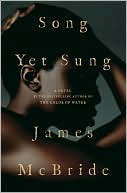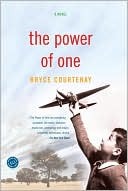Here's an overview of the books I read in February. Check out the full reviews on Marie's Book Garden or click on the title to take you directly to the review.
Fiction
Song Yet Sung, by James McBride
February's book club selection. Runaway slave Liz Spocott has been captured by a brutal slave stealer and squirrelled away in an attic with many other slaves. Hit on the head as a young girl, Liz has the ability to dream the future and is soon named "the Dreamer." Soon she escapes the clutches of the evil, legendary slave stealer Patty Cannon and her henchmen (including Cannon's son-in-law, Joe) and she's on the run. Set in the dark, mysterious, and mucky swamps of Maryland's eastern shore in 1850, the story also involves a widow, her sons, and her slaves; a slave catcher, Denwood, who Liz's master lures out of retirement; and a mysterious man who lives in the swamps, the "Woolman" and his son. McBride gives us a chilling, sensory glimpse into the lives and losses of slaves and the horrors they faced when they tried to run away.
Second Fiddle, by Rosanne Parry
I finally got around to reading Second Fiddle, the middle-grade novel written by a long-time friend from our church, Rosanne Parry. Second Fiddle's focus on orchestral music and girls' friendship drew me in and kept me hooked through the novel. Jody is an army kid in Berlin, Germany, right after the fall of the Berlin Wall. She plays second violin in a string trio with her more sophisticated friends Giselle and Vivian; however, Giselle and Jody are due to return to the U.S. soon and Jody is feeling sad that their trio collaborations are about to come to an end. Their last big hurrah is meant to be a solo and ensemble competition in Paris, but their music teacher falls ill and cannot accompany them. Just as they are nursing their disappointment about the thwarted Parisian trip, they venture into East Berlin and witness an attempted murder of a Soviet Union soldier. They rescue Arvo and revive him. They get into all sorts of adventures in Paris, and girls especially will enjoy reading about the friendship among the three young musicians.
The Power of One, by Bryce Courtenay
Much of February was spent on this lengthy and interesting book about South Africa during World War II. English boy Peekay is sent to boarding school at the age of 5 (!) because he has no father and his mother has had a mental breakdown. He is horribly, mercilessly bullied by his South-African schoolmates, who all see him as the enemy because of the Boer War. Right away, I felt dubious because I kept thinking about my own 5-year-old son and realizing that Peekay seemed more like 10 than 5. In spite of the bullying, Peekay survives and finds a way to rise above it all. (His extreme genius assisting him in this endeavor.) I enjoyed learning more about South Africa during this era, but many things about the book bugged me...and I positively hated the ending and it essentially ruined the rest of the book for me. I can't wait to discuss this book with my sister, who read it for her book group.
Westward to Home and A Perfect Place, Joshua's Oregon Trail Diaries (1 and 2), by Patricia Hermes
I read both books with 8-year-old Kieran. We are going to visit the Oregon Trail Interpretive Center in Baker City in March, and I wanted Kieran to have some historical context for the museum. These books are very easy to read--he could have easily read them himself but instead I read to him while he was in bed. They depict the trail and homesteading from the perspective of a 9-year-old boy.
The only difficult thing about the books was the high number of deaths and tragedies. And it doesn't end when they finally arrive in Oregon. One of the deaths at the end of Book 2 (of Joshua's grandfather) really took the wind out of our sails, and at that point Kieran did not want me to read any more! A few days later, though, he wanted me to finish. The books served their purpose: I know that Kieran will be able to relate more to what we see at the interpretive center...and Nicholas, too!
Nonfiction
A Complaint-Free World: Take the 21-Day Challenge, by Will Bowen
I only read one nonfiction book this month, which is unusual for me. I read this book as an encouragement to give up complaining during Lent (easier said than done!). It's a quick little read, and it gave me the structure and impetus I needed to give it a try. Will Bowen is a minister at Christ Church Unity in Kansas City, Missouri. He started the complaint-free movement in his church by giving away purple bracelets (shown wrapped around the globe, on the book cover) and developing a technique to reduce or eliminate complaining. The idea is that you wear the bracelet on one wrist, and when you complain, criticize, or gossip, you switch the bracelet to the other wrist. The goal is to try to go 21 consecutive days without complaining, criticizing, or gossipping out loud. (It doesn't count if it happens only in your head.) Bowen says that most people have to move their bracelet 15 to 20 times in the first few days, and soon it gets easier and easier. If you complain after 10 complaint-free days, you start all over again to aim for the 21 consecutive days. The book is quick and easy to read, and gives plenty of testimonials from others who have gone complaint free.
Fiction
Song Yet Sung, by James McBride
February's book club selection. Runaway slave Liz Spocott has been captured by a brutal slave stealer and squirrelled away in an attic with many other slaves. Hit on the head as a young girl, Liz has the ability to dream the future and is soon named "the Dreamer." Soon she escapes the clutches of the evil, legendary slave stealer Patty Cannon and her henchmen (including Cannon's son-in-law, Joe) and she's on the run. Set in the dark, mysterious, and mucky swamps of Maryland's eastern shore in 1850, the story also involves a widow, her sons, and her slaves; a slave catcher, Denwood, who Liz's master lures out of retirement; and a mysterious man who lives in the swamps, the "Woolman" and his son. McBride gives us a chilling, sensory glimpse into the lives and losses of slaves and the horrors they faced when they tried to run away.
Second Fiddle, by Rosanne Parry
I finally got around to reading Second Fiddle, the middle-grade novel written by a long-time friend from our church, Rosanne Parry. Second Fiddle's focus on orchestral music and girls' friendship drew me in and kept me hooked through the novel. Jody is an army kid in Berlin, Germany, right after the fall of the Berlin Wall. She plays second violin in a string trio with her more sophisticated friends Giselle and Vivian; however, Giselle and Jody are due to return to the U.S. soon and Jody is feeling sad that their trio collaborations are about to come to an end. Their last big hurrah is meant to be a solo and ensemble competition in Paris, but their music teacher falls ill and cannot accompany them. Just as they are nursing their disappointment about the thwarted Parisian trip, they venture into East Berlin and witness an attempted murder of a Soviet Union soldier. They rescue Arvo and revive him. They get into all sorts of adventures in Paris, and girls especially will enjoy reading about the friendship among the three young musicians.
The Power of One, by Bryce Courtenay
Much of February was spent on this lengthy and interesting book about South Africa during World War II. English boy Peekay is sent to boarding school at the age of 5 (!) because he has no father and his mother has had a mental breakdown. He is horribly, mercilessly bullied by his South-African schoolmates, who all see him as the enemy because of the Boer War. Right away, I felt dubious because I kept thinking about my own 5-year-old son and realizing that Peekay seemed more like 10 than 5. In spite of the bullying, Peekay survives and finds a way to rise above it all. (His extreme genius assisting him in this endeavor.) I enjoyed learning more about South Africa during this era, but many things about the book bugged me...and I positively hated the ending and it essentially ruined the rest of the book for me. I can't wait to discuss this book with my sister, who read it for her book group.
Westward to Home and A Perfect Place, Joshua's Oregon Trail Diaries (1 and 2), by Patricia Hermes
I read both books with 8-year-old Kieran. We are going to visit the Oregon Trail Interpretive Center in Baker City in March, and I wanted Kieran to have some historical context for the museum. These books are very easy to read--he could have easily read them himself but instead I read to him while he was in bed. They depict the trail and homesteading from the perspective of a 9-year-old boy.
The only difficult thing about the books was the high number of deaths and tragedies. And it doesn't end when they finally arrive in Oregon. One of the deaths at the end of Book 2 (of Joshua's grandfather) really took the wind out of our sails, and at that point Kieran did not want me to read any more! A few days later, though, he wanted me to finish. The books served their purpose: I know that Kieran will be able to relate more to what we see at the interpretive center...and Nicholas, too!
Nonfiction
A Complaint-Free World: Take the 21-Day Challenge, by Will Bowen
I only read one nonfiction book this month, which is unusual for me. I read this book as an encouragement to give up complaining during Lent (easier said than done!). It's a quick little read, and it gave me the structure and impetus I needed to give it a try. Will Bowen is a minister at Christ Church Unity in Kansas City, Missouri. He started the complaint-free movement in his church by giving away purple bracelets (shown wrapped around the globe, on the book cover) and developing a technique to reduce or eliminate complaining. The idea is that you wear the bracelet on one wrist, and when you complain, criticize, or gossip, you switch the bracelet to the other wrist. The goal is to try to go 21 consecutive days without complaining, criticizing, or gossipping out loud. (It doesn't count if it happens only in your head.) Bowen says that most people have to move their bracelet 15 to 20 times in the first few days, and soon it gets easier and easier. If you complain after 10 complaint-free days, you start all over again to aim for the 21 consecutive days. The book is quick and easy to read, and gives plenty of testimonials from others who have gone complaint free.






Comments
Post a Comment